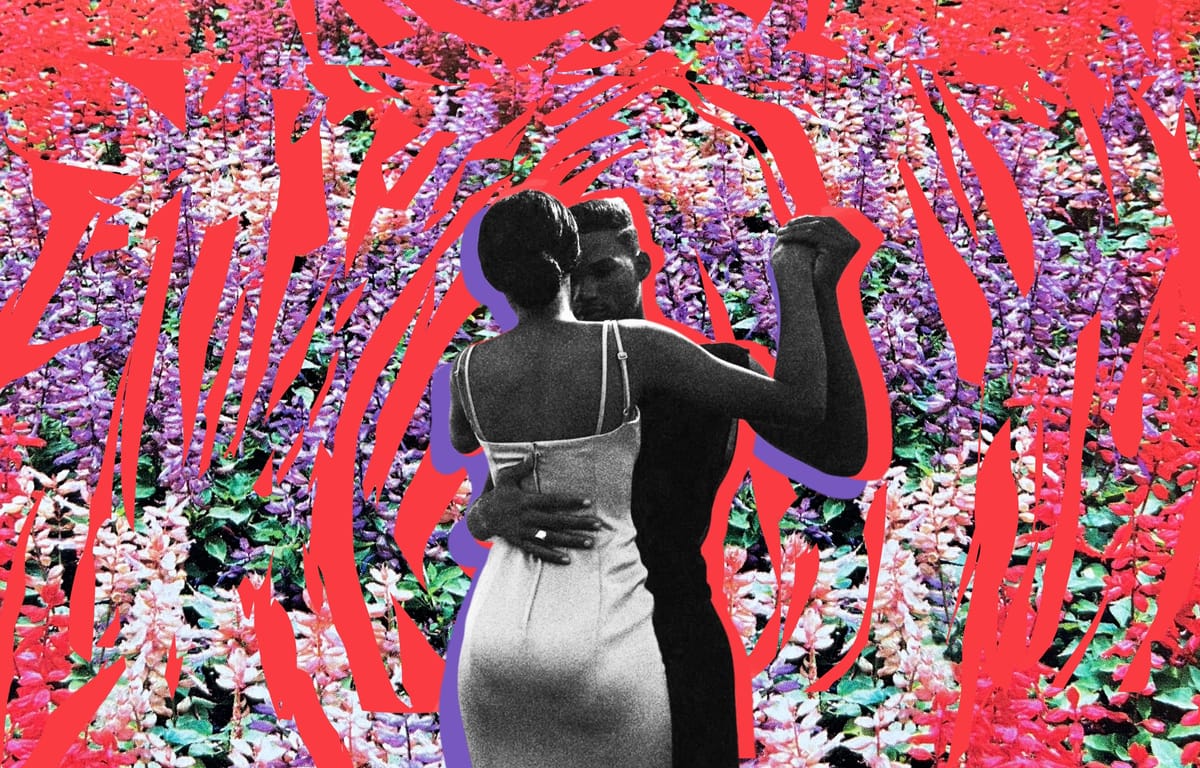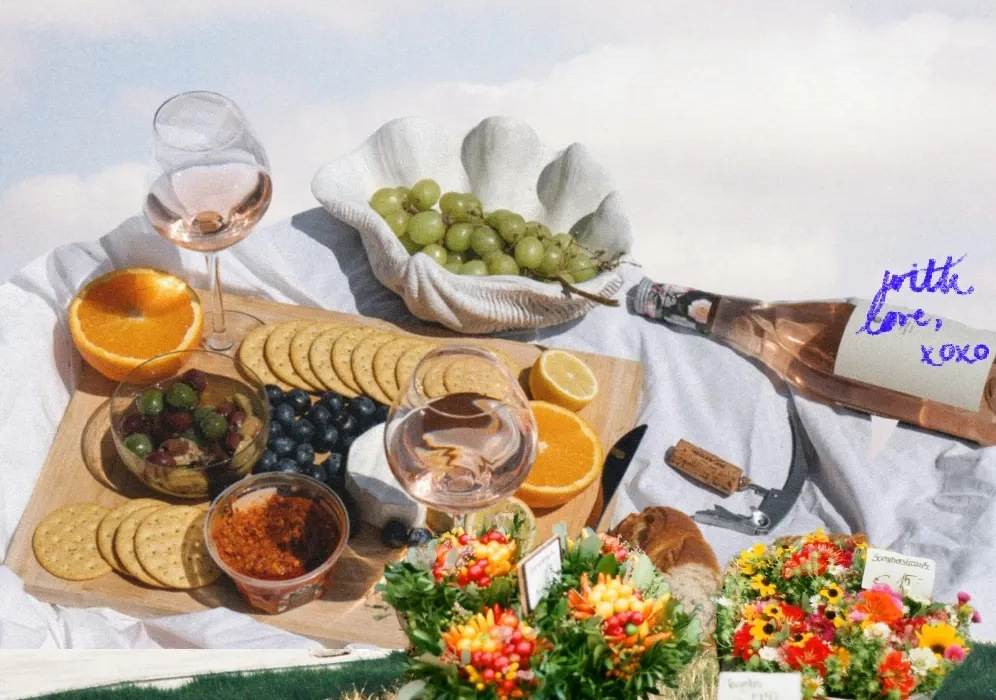A while back, I saw a tweet captioned: “the bookshelf of the worst person you know,” with a photo of popular self-help titles like The 48 Laws of Power, Think and Grow Rich, The 7 Habits of Highly Effective People, and The Subtle Art of Not Giving A F*ck. That tweet got at something that I’ve long felt; the self-help industrial complex is deeply, problematically embedded within the status quo. It’s full of productivity hacks designed to self-optimize in a capitalist world, wellness tips that pretend you can self-help your way out of systemic oppression, and gender essentialist nonsense about how women and men “naturally” behave in relationships. For that reason, it’s a genre I usually shy away from.
But activist, educator, and author Dean Spade—best known for Mutual Aid—flips the genre on its head in his new book Love in a F*cked Up World. Spade takes the approachable, advice-giving format of self-help and reclaims it for liberation, grounded in the wisdom of deep organizing and movement work. It’s an accessible guide to navigating relationships—romantic, platonic, and otherwise—as someone committed to justice, both inside and beyond our interpersonal relationships.
At its heart, the book insists that romance isn’t some separate, apolitical side quest to our political lives. If our movements are to last, our relationships have to be spaces where our values of freedom, justice, and collective care are actively practiced. Building the world we want requires starting within ourselves and our most intimate connections.
Love in a F*cked Up World is a gem, packed with insights from how to de-escalate a crush that you know would be messy to pursue, to what boundaries actually look like, to how to reign in jealousy when it inevitably arises. There’s so much wisdom in these pages, but here are the five lessons that really stuck with me.
Lesson 1: To have secure and healthy romantic relationships, we have to throw out romance myth scripts.
Romance myths go something like this: romantic relationships are the most important relationships in our lives; they are the place where we become complete, satisfied, loved, and safe; real romance is eternal and exclusive; true love is easy, natural, and unchanging.
These cultural scripts are fed to us from an early age. They show up in the media we consume, are passed down to us from our parents’ and grandparents’ relationships, and are the default norms in the dating world. Most of us unconsciously internalize at least some parts of these myths, and it’s hard to fully unlearn them, even when we’re trying.
Simply put, these myths sabotage our relationships. They set up false expectations and narrow definitions of love, causing us to make choices that may not actually serve us—like moving far away from our communities for a partner’s job without deeply considering the cost, or letting important friendships fade because our time is consumed by one person. These myths can also breed resentment when someone doesn’t follow the script: not desiring marriage, choosing to live alone through adulthood, or wanting sex more or less than they are “supposed to.”
Clearly, these myths are not serving us. To have healthier relationships, we need to throw them out and get in touch with our true values, needs, and desires.
Lesson 2: Safety does not come from exclusivity. We need promiscuous support networks.
The romance myth teaches us to equate love with isolation and exclusivity—not just in romantic relationships, but in friendship and family, too. That belief shows up in the small pangs of jealousy when a best friend spends time with someone else, or the sting when a partner confides in another person first. In a scarcity-based culture, exclusivity becomes a marker of significance: I matter because I’m the only one.
In reality, exclusivity makes our relationships more fragile. To survive anything—especially during compounding crises of climate, war, and rising inequality—we can’t afford to have our needs tied to just one or two people. We need what Spade calls ‘promiscuous support systems’: broad, overlapping networks of care, so that when a relationship shifts or one person can’t meet a particular need, we have other connections to turn to. The more we can build and welcome abundant networks of support, the more resilient we become.
Lesson 3: You are neither the best nor the worst. It is important to find healthy mediums between extremes.
When we experience intense emotions, we often default to extremes: I had a strong negative feeling, so I must be the problem or I had a strong negative feeling, so the other person must be the problem. Most of the time, the reality is somewhere in the middle. Not every feeling we have means someone else is to blame, and not every mistake we make means we’re irredeemable.
As a society, when people hurt each other, we usually default to one of two polar positions: minimization of the harm, or punishment of the harm-doer. Punishment in our current system can be enormous: arrest, deportation, imprisonment, loss of kids, jobs, or housing. True accountability requires a much more nuanced approach that involves assessing the harm and coming up with right-sized responses to it.
The work here is to reject binaries. Relationships are complex, and so are we. Spade offers us a question to help interrupt black-and-white thinking: “What else is true?” This opens up space for nuance, for holding multiple truths at once, and for creating responses that fit the situation instead of defaulting to extremes. Check out the full worksheet in the book for a helpful exercise!
Lesson 4: Your identity is not fixed. You are what you practice.
Our daily lives are a collection of practiced behaviors, thoughts, and feelings that we repeat so often they start to feel like “just who we are.” This idea builds on feminist philosopher Judith Butler’s theory that gender itself is just a collection of repeated performances: wearing “feminine” clothing, styling your hair in certain gendered ways, moving or speaking in ways that align with cultural codes. Do these small things enough, and they become a sort of second skin.
The same is true for many of the ways we identify ourselves: “I’m avoidant.” “I’m anxiously-attached.” “I’m a bad communicator.” These can feel like fixed truths (and a lot of relationship self-help literature likes to categorize us in these ways), but really they’re just patterns we’ve practiced into being. The good news is, we can practice something different! It can be difficult, and requires patience and intention, but you are not stuck being the same version of yourself forever. You can practice toward the person you want to be.
Lesson 5: Relationship types are morally neutral. None are inherently better, or more radical.
On the left, it can sometimes feel like there is a subtle hierarchy of what counts as “radical” when it comes to relationships. In college, I found myself falling into this line of thinking, believing that to be “feminist” and sexually-liberated was to hook up casually. It took a lot of unlearning to realize that being a feminist actually is to reject shame and scripts about purity in favor of a relationship to sex that feels true to you—whether that's having great casual sex, waiting for long-term commitment with a partner, or anything in between.
As Spade puts it, “Committed relationships, polyamorous relationships, friends with benefits, monogamous relationships, hookups and anonymous sex, brief relationships, and open relationships are all politically and morally equal.” Despite the romance myth’s insistence, duration, exclusivity, or “seriousness” aren’t markers of value either; staying in a relationship or ending it can both be equally valid, equally radical, and equally ripe for growth.
When we rank certain relationship structures above others (whatever those rankings may be), we only recreate hierarchies of value that perpetuate patterns of shame, betrayal, and disconnection. Whatever your relationship looks like, true radicalism is in rejecting dominant scripts, deciding for yourself what behaviors feel best, and navigating this terrain with commitments to care and justice at the forefront.
My final takeaway: things are deeply, profoundly f*cked right now—and if we want to survive it together, we need real skills for being with each other. Love in a F*cked Up World is a sharp, generous place to start building them. My copy came signed with the inscription, “Keep loving! Keep fighting!” And so we shall.
Help us keep Radish free to access. Consider becoming a member or giving once.

